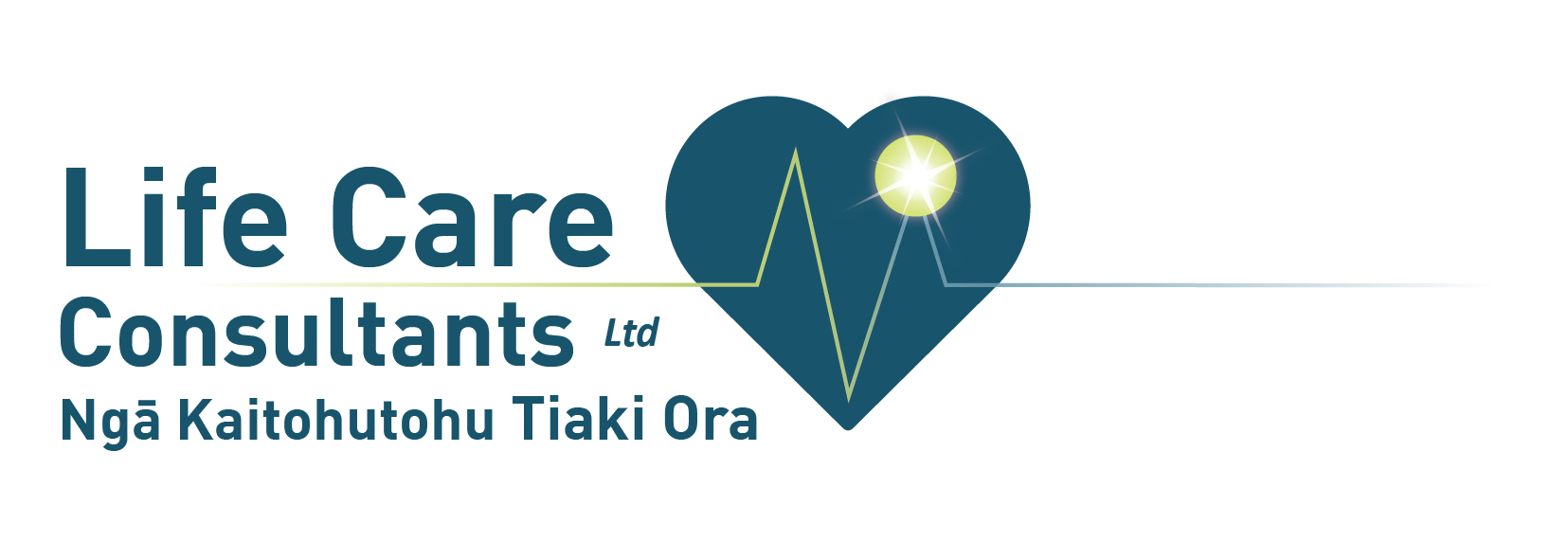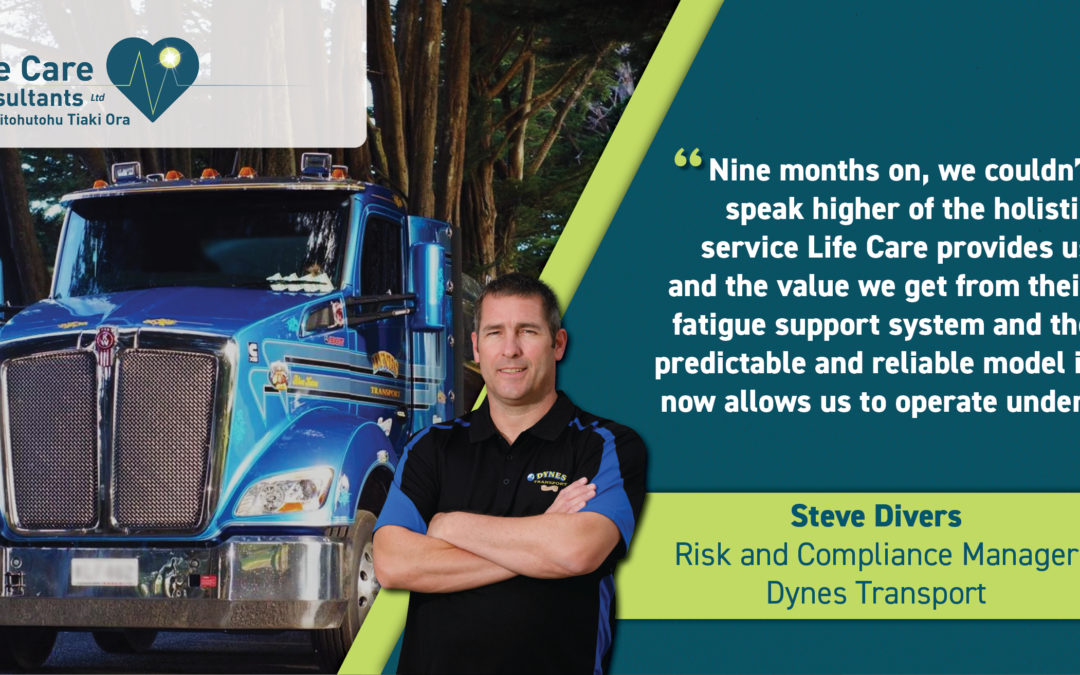Dynes Transport is a New Zealand family-run business that has been servicing the logging and dairy sector for over 50 years originally from Tapanui, West Otago, and across the South Island, before recently expanding into the North Island. With these changes came longer travel journeys and a more geographically disperse workforce that bought with it a new wave of health challenges and risks for the company.
Dynes Transport Risk and Compliance Manager, Steve Divers explains “As a company, we identified that fatigue is likely to be a critical risk in our industry but also that we were managing it in a standard way. Our industry currently manages fatigue through the use of government regulation via the Worktime & Log Book Rule 2007 which stipulates a driver’s logbook is the minimum standard required for a fatigue management system. As good as logbooks are, they are only one part of managing fatigue. Whilst they provide a measuring and recording device for how many hours worked, when breaks are taken, etc they do not actively manage fatigue. Because of this, we took the view that they are only a compliance measuring tool, and not a genuine detection and prevention system.”
“Dyne’s started testing an automated fatigue alert management system (Guardian Seeing Eye) which included installing cameras in our truck cabs designed to analyse driver eye and face patterns for signs of fatigue events. Upon the system recognising ‘an event’ the actual camera footage is sent away to be verified by the system guardians before an automated message is then sent to our safety team, as well as alerting the driver instantaneously via both an audio alert and a vibrating seat, with the primary goal being to significantly
reduce the chance of a fatigue-related accident and allow for real-time reporting.”
“Prior to installing the cameras, Dynes developed a policy to ensure adequate support could be utilised if they started receiving fatigue alerts from some of our drivers. We took the view that fatigue is a health issue so any response to manage the risk should be supported by an appropriate wellness programme.”
“We were hearing stories of other transport companies trialing the same in-cab alert system but once they found out their drivers were reporting signs of fatigue, many companies opted to remove them from the cabs as identifying the problem was one thing, but managing the risk was entirely different. This mentality didn’t sit
well with us as we didn’t want to ignore the problem, and instead set out to attack it head-on by hunting for other ways to help our staff to reduce their fatigue levels and support them to live healthier lives both in and outside the cab.”
“A couple of years ago, we were becoming frustrated with the service offering limitations of our current health provider. We were finding it difficult to track year-on-year results, keep an eye on trends across the company, track who was up-to-date with testing, and easily recognise staff that are high-risk, making improvements,
or regressing. After making the call to move across to Life Care Consultants for our annual health checks, our account manager approached us about their new Health Hub Portal which would allow us to centralise all of this in one location, as well as offering the added benefits of using Readi Bands for our higher-risk staff to
track individual sleep patterns and offer medically-based fatigue assessments. The purpose of a fatigue assessment being to gauge the level of fatigue and to test whether a medical issue such as sleep apnoea could be an underlying cause.”
“Nine months on, we couldn’t speak higher of the holistic service Life Care provide us and the value we get from their fatigue support system and the predictable and reliable model it now allows us to operate under.”
They have made the whole process simple and we even get our own dedicated fatigue manager at Life Care who checks in every morning to let us know how those using the Readi Bands have gone overnight.” Readi bands report how well a user has slept, how long and the quality of the sleep, together with how much movement was recorded by the wearer during their sleep. They don’t identify what the wearer was doing but rather an overview only of the sleep quality to benchmark desired sleep patterns to maximise sleep rest.
“Once our in-cab fatigue system has detected multiple events of fatigue from an individual, they are referred to Life Care for a fatigue assessment and then referred to the individual’s health practitioner to rule out any underlying health causes. We then deploy a Readi Band to start monitoring their sleep patterns, then every morning our Life Care fatigue manager checks in to discuss how well those wearing the bands have slept and where necessary back this up with advice to the staff member concerned to make healthier lifestyle choices – be it nutrition, sleep, family, physical or mental health wellbeing or environmental factors. What’s important is that this information is only seen by the wearer and our health provider to ensure the privacy of our staff members are respected, but also allows our drivers to self-monitor improvements.”
“Our people and their health and wellbeing are of the utmost importance to us and we are dedicated to making sure they are fit and healthy to not only carry out their work safely but also enjoy their lives outside of work.”
“Don’t get me wrong, the mindset shift required to roll out both the in-cab cameras and the fatigue management system changes internally hasn’t always been easy however, the results now speak for themselves. We have seen a dramatic drop in the number of fatigue events recorded across the vehicle fleet it’s been trialed on, as well as some really humbling personal success stories from staff, which gives us the reassurance we are doing the right thing by rolling out fatigue management cameras to all our trucks.”
Stephen Divers
Risk and Compliance Manager
Dynes Transport
Download the printable version here

